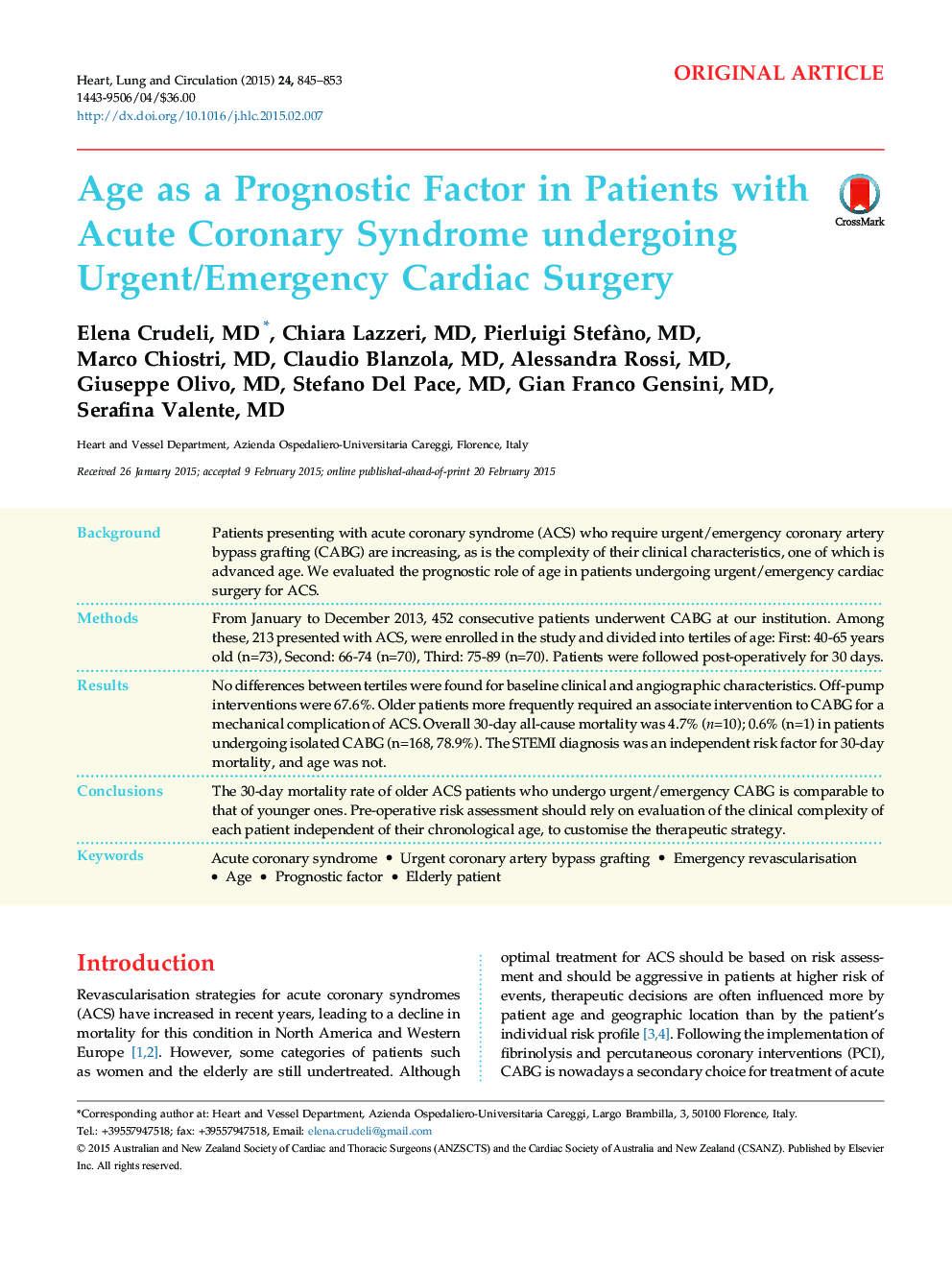| Article ID | Journal | Published Year | Pages | File Type |
|---|---|---|---|---|
| 2917817 | Heart, Lung and Circulation | 2015 | 9 Pages |
BackgroundPatients presenting with acute coronary syndrome (ACS) who require urgent/emergency coronary artery bypass grafting (CABG) are increasing, as is the complexity of their clinical characteristics, one of which is advanced age. We evaluated the prognostic role of age in patients undergoing urgent/emergency cardiac surgery for ACS.MethodsFrom January to December 2013, 452 consecutive patients underwent CABG at our institution. Among these, 213 presented with ACS, were enrolled in the study and divided into tertiles of age: First: 40-65 years old (n=73), Second: 66-74 (n=70), Third: 75-89 (n=70). Patients were followed post-operatively for 30 days.ResultsNo differences between tertiles were found for baseline clinical and angiographic characteristics. Off-pump interventions were 67.6%. Older patients more frequently required an associate intervention to CABG for a mechanical complication of ACS. Overall 30-day all-cause mortality was 4.7% (n=10); 0.6% (n=1) in patients undergoing isolated CABG (n=168, 78.9%). The STEMI diagnosis was an independent risk factor for 30-day mortality, and age was not.ConclusionsThe 30-day mortality rate of older ACS patients who undergo urgent/emergency CABG is comparable to that of younger ones. Pre-operative risk assessment should rely on evaluation of the clinical complexity of each patient independent of their chronological age, to customise the therapeutic strategy.
